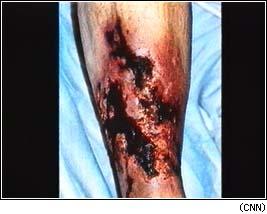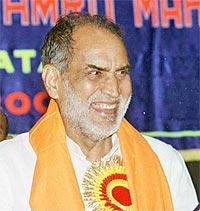
I have tried to reach out to the Monarchists (The King's Best Option: Go Back On TV One More Time) and the Maoists (Sought eDialogue with Dr. Baburam Bhattarai, Ideological Overture To The Nepali Maoists), but I think it a safe bet for the democrats to assume neither will "get" it, neither will come around to it. To both of them people who believe in non-violent political action are weak, so to speak.
So the democrats have to chalk out a strategy that has the ultimate goal of taking back the country from these two extremists through non-violent means. I suggest a three-pronged strategy.
- Massive open, internal debate which involves the largest possible number of Nepalis and friends of Nepalis the world over, but also inside of Nepal. My bias is for the medium of the web. The goal is to build a national/global coalition and enlarge that coalition as much as we can. 10,000 is better than 1,000. 10 million is better than 10,000. 100 million is better than 10 million. The two guns will have to be shouted down. The "emergency" does not exist outside Nepal's borders, it does not exist online. We could have a "ring" of towns along the India-Nepal border on the India side, and co-ordinate from there our action in the country, to support co-ordinated acts of massive, peaceful defiance within the country. All Indian political parties have already pledged any and all support. That could greatly help with logistics.
- A simple, clear platform. I propose an uncompromising one of two words: Democratic Republic. We might go to a compromise position of a Constituent Assembly, but no more talk of Constitutional Monarchy and Multi-Party Democracy.
- There has to be a very clear plan to take over power. A new constitution from scratch that is subject to a referendum. We should work to create a Nepal that (1) abolishes the army, hopefully after the Maoists disband their own armed units, (2) dramatically increases state expenditures on education upto the secondary level, and primary health care, making both free of cost and universal, and letting the poor have universal access to micro-credit to start small businesses, and (3) bans fund-raising by political parties, and instead the parties get funds for party building and election campaigns from the state that is directly proportional to the number of votes they might have earned in the last held national elections. Even if we are to do only 2, 3 and 4 if the Maoists refuse to lay down their guns, we will have stolen their political/social thunder, subsequent to which they are but a law and order problem, and that law enforcement will have to be quick and aggresive, with a major focus on going after the leadership, like in Peru.
In The News
- Nepal: Security Forces 'Disappear' Hundreds of CiviliansReuters AlertNet, UK
- Opposition slams Nepal king from house arrestDaily Times, Pakistan
- 5 Nepal parties to launch stir from Mar.8: New Kerala
- Traffic returns to Nepal highwaysBBC News, UK
- Violence flares in Nepal; guerrillas end blockade Globe and Mail
- ‘Nepal confident of international support in its fight against ...Gorkhapatra, Nepal
- Nepal rebels vow to keep up resistanceTaipei Times, Taiwan
- Suspected rebels attack army truck, villagers; at least 14 dead Chicago Tribune
- Nepal: on the brink of disaster ReliefWeb

